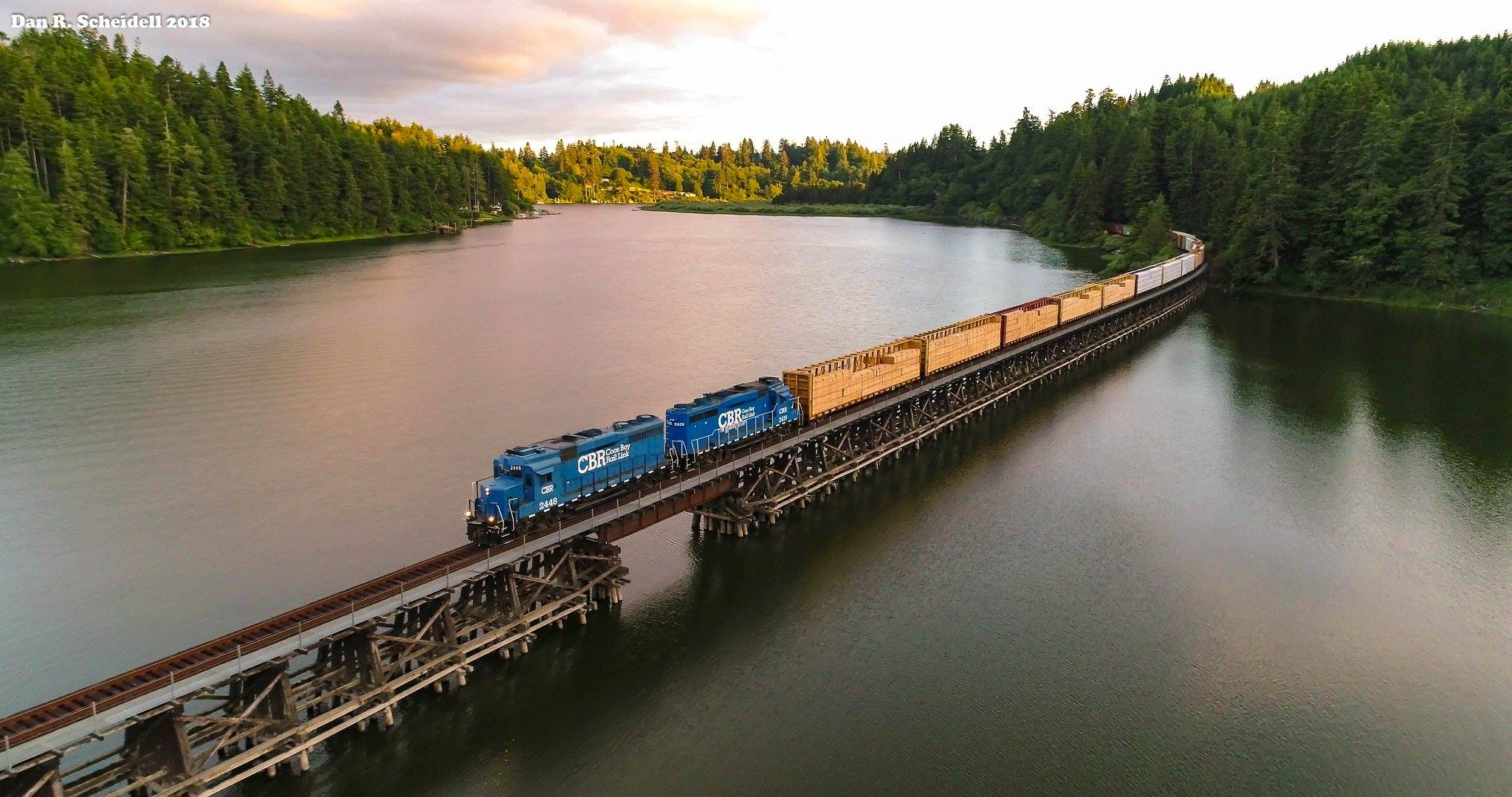Archives
Business, Feature, Freight News, Rail
DOT Awards $2.4 Billion for Rail Projects
[ November 1, 2024 // Gary G Burrows ]The U.S. Department of Transportation’s Federal Railroad Administration, or FRA, has awarded more than US$2.4 billion in Bipartisan Infrastructure Law funding for 122 rail improvement projects in 41 states and Washington, D.C.
These projects will make rail safer, more reliable, and more resilient, getting goods and people where they need to be quickly with fewer disruptions, lower shipping costs and less pollution.
Administered through FRA’s Consolidated Rail Infrastructure and Safety Improvements Program, or CRISI, projects in this round of selections reflect the broad array of rail safety and service improvements eligible under this program, such as upgrading track, replacing or rehabilitating aging bridges, expanding rail connections at ports, adding modern locomotives to fleets, and more.
The CRISI Program is also the only federal grant program prioritizing smaller, short line railroads vital to regional supply chains.
This announcement is part of a series of investments t
The Biden-Harris Administration has invested in nearly 300 rail projects and dozens of emerging passenger rail corridors across the country through Bipartisan Infrastructure Law-funded FRA grant programs. This marks the most significant investment in American rail in more than 50 years.
“We’re funding rail infrastructure projects that create jobs and expand workforce development, reduce costs for consumers, and directly benefit communities across the country,” said U.S. Transportation Secretary Pete Buttigieg. “Each project advances a future where our supply chains are stronger, passenger rail more accessible, and freight movement safer and more efficient.”
Selected CRISI projects this round include:
• In Illinois, more than US$157 million will be invested in a Springfield rail improvements project will consolidate the Union Pacific and Norfolk Southern corridors into one multitrack corridor through the Springfield and advance the efforts to provide a higher speed intercity passenger rail connection between St. Louis and Chicago. The project will also construct a Multimodal Transportation Center to better connect public passenger rail, local bus service, and intercity bus service.
• In North Carolina, more than US$105.5 million will be invested in the North Carolina Railroad Co Carolinian and Piedmont Passenger and Freight Improvements Project, to improve freight and passenger rail capacity of the NCRR’s NC-Line, including adding more than five miles of sidings, reconstructing up to 69 miles of track, eliminating a grade crossing, and improving track geometry.
• In Georgia, more than US$26.5 million will be invested in Colonel’s Island Rail Improvements Project. In partnership with the Georgia Ports Authority, the project will improve the Myd Harris Yard and construct a new South Side Rail Yard at the Colonel’s Island Terminal in Brunswick, creating opportunities to move automotive shipments by rail instead of truck. Specifically, for the South Side Rail Yard, the project will construct four new yard tracks, estimated at about 4.5 miles of track, and construct south side auto storage area and a perimeter road, as well as grade separate an existing crossing. Additionally, the project will lengthen and reconfigure tracks at the existing Myd Harris Yard to improve operational efficiency and bring rail switching activities inside the terminal and away from the adjacent neighborhood.
• In Oregon, US$29 million will be directed to modernize the Coos Bay Rail Line, as part of the Port of Coos Bay’s Pacific Coast Intermodal Port Project, which also recent received an Infrastructure for Rebuilding America, or INFRA, grant. The CRISI grant enables design and engineering of comprehensive updates to the Coos Bay Rail Line, including track rehabilitation, updates to signals and communication systems, and critical reviews of tunnels, bridges and rail crossings. These rail improvements will support the PCIP ship-to-rail container terminal under development by the Port of Coos Bay and partner, NorthPoint Development.
Designed as the only fully ship-to-rail terminal on the West Coast, the PCIP project will efficiently connect Pacific trade routes to markets across the United States. (More information on the Coos Bay Rail Line and the PCIP is available at http://www.pcipproject.com.
• In Michigan, more than $67 million will be invested in Detroit to improve and expand the Livernois Intermodal Facility by installing about 17,200 feet of new track and upgrading paving as well replacing diesel gantry cranes with new hybrid and fully electric gantry cranes in Detroit and Wayne County, Michigan.
In addition to the CRISI grants, USDOT and FRA seeks to improve rail safety. This includes finalizing new safety regulations, conducting focused safety audits, expanding a vital safety program to include workers at Class I freight railroads, and pushing freight railroads to provide guaranteed paid sick leave to all workers.
The full list of Fiscal Year 2023 and 2024 CRISI project selections can be found at https://tinyurl.com/chc9f6jy. Additional information on FRA’s CRISI Program is also available at https://tinyurl.com/3v3534wv.

Tags: Federal Railroad Administration, Port of Coos Bay







